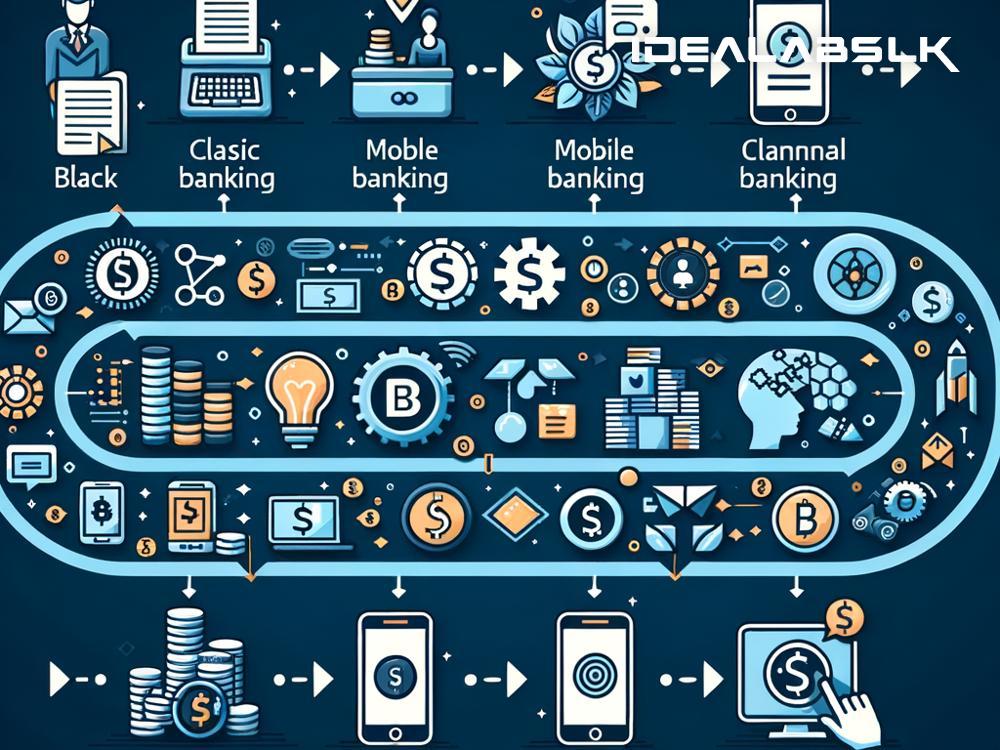The Evolution of Fintech Solutions: Simplifying Financial Services for All
In the span of just a few decades, the way we manage, spend, and invest our money has drastically changed, thanks to Fintech. Fintech, or financial technology, combines finance and technology to make financial services more accessible and user-friendly for people everywhere. From the bulky computers of the past to the sleek smartphones in our pockets, Fintech solutions have grown tremendously, making our financial lives easier than ever before. Let's dive into the evolution of Fintech and how it has reshaped our approach to money.
The Humble Beginnings
Fintech's journey started in the late 20th century, but it was somewhat of a quiet revolution at first. In the early days, Fintech was all about backend systems of traditional banks. Think of these as the unseen engines in the bank's back room, helping them run more efficiently but not yet touching the lives of everyday consumers directly. However, the introduction of the internet and online banking in the 1990s started to change everything. For the first time, people began managing their accounts without needing to step foot inside a bank. This period laid the foundation for what Fintech would become.
The Boom of Mobile and Online Payments
The rapid rise of smartphones and widespread internet access in the 2000s pushed Fintech into a new era. Suddenly, it wasn’t just about online banking. Services like PayPal transformed the way we send money to each other, making transactions possible with just a few clicks or taps. The introduction of mobile banking apps meant our financial life could be managed on the go, anywhere, anytime. This period also saw the birth of crowdfunding platforms like Kickstarter and Indiegogo, which democratized funding for projects and startups, allowing anyone to pitch their idea online and receive financial backing from people around the world.
The Age of Personalization and Automation
As technology advanced, so did the sophistication of Fintech solutions. We entered an age where services could be tailored to the individual needs of users. Budgeting and investing apps like Mint and Robinhood came onto the scene, offering personalized advice and easy-to-use interfaces to track finances and invest in the stock market with minimal fees. Artificial intelligence (AI) and machine learning began to play a significant role, automating everything from customer service (through chatbots) to fraud detection, making financial transactions safer and customer interactions smoother.
Blockchain and Cryptocurrencies: The New Frontier
Perhaps one of the most buzzworthy developments in Fintech has been blockchain technology and the rise of cryptocurrencies like Bitcoin. Blockchain offered a decentralized ledger of transactions, providing enhanced security and transparency. The excitement around cryptocurrencies and blockchain technology hinted at a future where traditional banking institutions might no longer be the gatekeepers of financial services, proposing a more democratized financial landscape.
The Future of Fintech: Inclusion and Global Reach
Today, Fintech is not slowing down. Its next phase is set to focus on financial inclusion, aiming to provide services to the unbanked and underbanked populations of the world. Technologies like mobile money in Africa have already made significant strides, offering banking services to millions who have never had them. Meanwhile, the development of super apps, which integrate various financial and non-financial services in one platform, are beginning to take shape, particularly in Asia.
Simplifying Financial Services for All
The evolution of Fintech has been nothing short of revolutionary. By marrying finance with technology, it has simplified how we interact with money, making financial services more accessible, personalized, and secure. What was once the domain of big banks and institutions is now in the palms of our hands, giving power back to the individual user. As we look to the future, the potential for Fintech to further democratize access to financial services and empower people globally is immense.
While challenges remain, including ensuring security, privacy, and equitable access, the trajectory of Fintech suggests an exciting future. One where financial services are no longer a complex maze but a simple, inclusive system available to everyone, everywhere. As we continue to push the boundaries of what's possible, the evolution of Fintech is set to redefine our financial lives in ways we are only just beginning to imagine.

